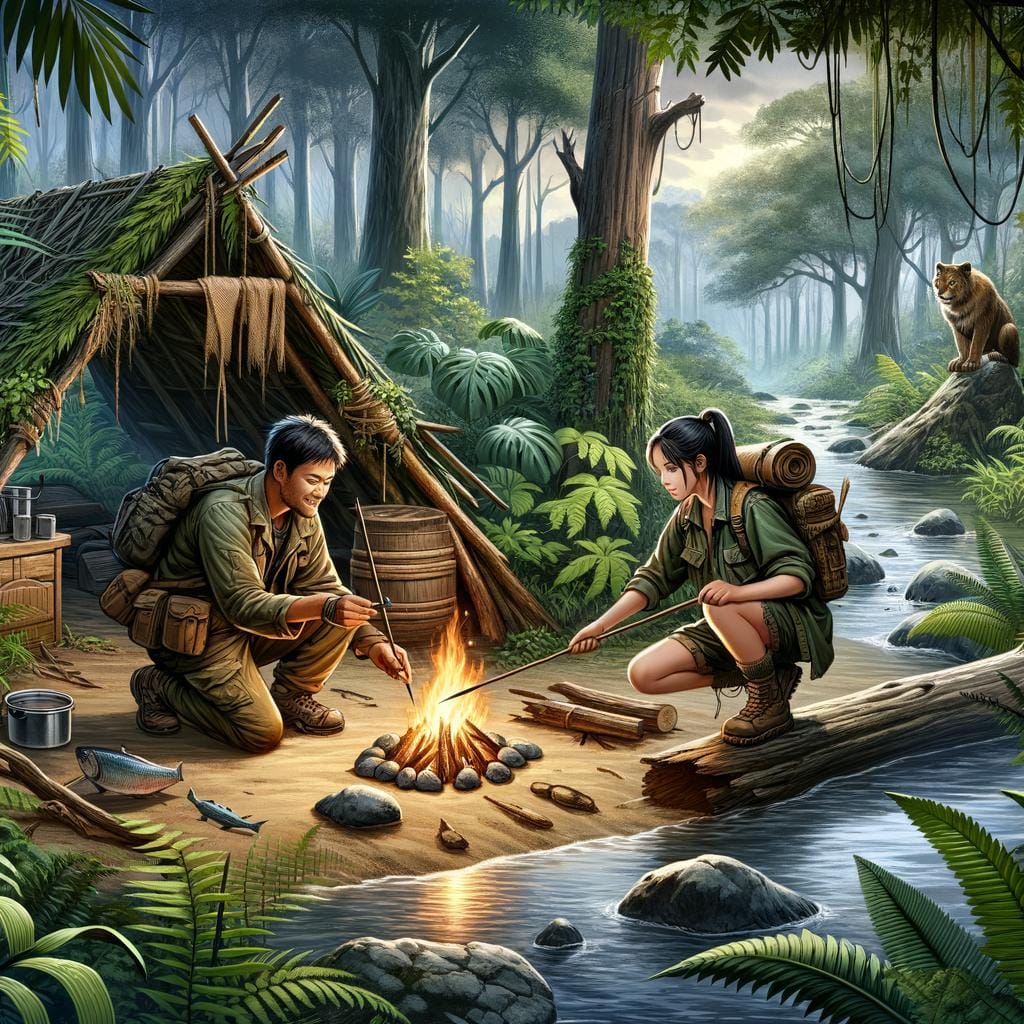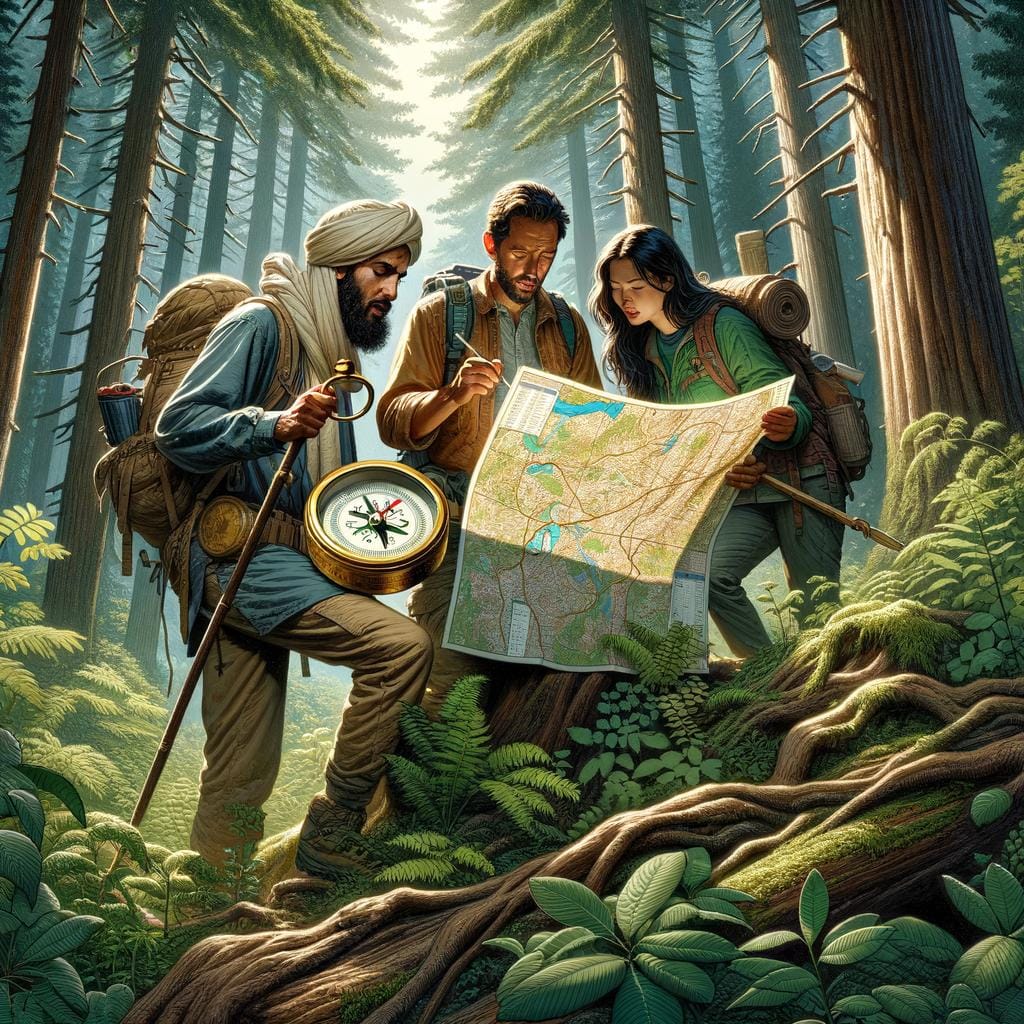Navigation skills are essential in today’s fast-paced world, where knowing how to find your way efficiently can make a significant difference. Whether it’s navigating through a bustling city, exploring the great outdoors, or piloting an aircraft, having a strong sense of direction and the ability to read maps and use navigational tools is crucial.
In this article, we will delve into the importance of navigation skills and how they play a vital role in various aspects of our lives.
Throughout history, humans have relied on navigation skills to travel and explore new territories. From ancient techniques using the stars and landmarks to modern advancements like GPS technology, our ability to navigate has evolved significantly over time. Understanding the roots of navigation skills provides us with valuable insights into their significance and impact on society.
Learning different types of navigation skills – whether it be land, sea or air navigation – opens up opportunities for diverse experiences and adventures. Whether you’re hiking through rugged terrains, sailing across vast oceans, or flying through the skies, honing your navigational abilities enhances your safety and enjoyment during these endeavors. By mastering these skills, you not only gain independence but also boost your confidence in handling various situations that may require quick decision-making based on your surroundings.
The History of Navigation Skills
Navigation has been an essential skill for humans since ancient times, playing a crucial role in exploration, trade, and survival. The history of navigation skills is a fascinating journey that showcases the evolution of techniques from rudimentary methods to the advanced technology we use today. In ancient civilizations, such as the Phoenicians and Polynesians, navigators relied on celestial cues, landmarks, and natural elements like wind patterns to traverse vast distances across land and sea.
One of the most significant advancements in navigation skills came with the development of instruments like the astrolabe and compass. These tools revolutionized how people could determine their position relative to the stars or magnetic north, leading to more accurate mapping and exploration. As maritime trade expanded during the Age of Exploration, skilled navigators like Christopher Columbus and Ferdinand Magellan undertook daring voyages that reshaped our understanding of the world.
With the advent of modern technology, navigation skills have become even more precise and efficient. Global Positioning Systems (GPS) now allow individuals to pinpoint their location with remarkable accuracy using satellites orbiting Earth. While traditional navigation methods are still valuable for building a foundation in understanding spatial relationships, technological advancements have made navigation more accessible to people worldwide. Mastering navigation skills today involves blending traditional knowledge with cutting-edge tools to navigate our increasingly interconnected world successfully.
| Navigation Skills | Ancient Navigation |
|---|---|
| Celestial cues | Astrolabe |
| Landmarks | Compass |
| Wind patterns | Age of Exploration |
Types of Navigation Skills
Navigation skills are essential for both recreational and professional purposes, whether traveling by land, sea, or air. Each type of navigation requires a specific set of techniques and tools to ensure safe and efficient travel. Developing proficiency in these different areas can open up a world of opportunities for exploration and adventure.
Land Navigation
Land navigation involves the ability to navigate through terrain on foot, using various landmarks, maps, compasses, and GPS devices. Whether hiking in the wilderness or orienteering in a competition, mastering land navigation is crucial for avoiding getting lost and ensuring you reach your destination safely. Learning how to read topographic maps, interpret contour lines, and use a compass effectively are fundamental skills for any outdoor enthusiast.
Sea Navigation
Sea navigation refers to the art of navigating a vessel across open water using celestial navigation, dead reckoning, radar systems, and electronic charts. Sailors and boaters rely on their knowledge of nautical charts, buoys, lighthouses, and other navigational aids to plot their course and avoid hazards such as rocks or shoals. Understanding tides, currents, wind patterns, and weather conditions is also critical for safe passage at sea.
Air Navigation
Air navigation involves guiding an aircraft from one point to another while maintaining safety and efficiency in the airspace. Pilots use a combination of instruments like altimeters, gyroscopes, GPS receivers, radio beacons, and flight computers to navigate through different altitudes and airspace restrictions. Understanding aviation charts, flight plans, communication protocols with air traffic control (ATC), and meteorological reports are vital components of air navigation skills that ensure a smooth journey from takeoff to landing.
How to Develop Your Navigation Skills
Developing navigation skills is essential in today’s world, where technology often serves as our primary means of getting from point A to point B. While GPS and navigation apps have made it easier to navigate unfamiliar territories, it is still crucial to have basic navigation skills in case these tools fail or are not available. By improving your sense of direction and honing your navigation abilities, you can become more self-reliant and confident in any environment.
One way to develop your navigation skills is by practicing orienteering, a sport that involves using a map and compass to navigate through challenging terrain. Orienteering not only helps improve your map reading and compass usage but also enhances your spatial awareness and critical thinking skills. Participating in orienteering events or simply practicing in local parks can significantly boost your ability to navigate accurately in various settings.
Additionally, learning how to interpret natural signs and landmarks can be beneficial for enhancing your navigation skills, especially in outdoor environments where traditional navigation tools may not be readily available. Understanding how the position of the sun, wind patterns, vegetation growth, or animal behavior can help guide you in the right direction. By paying attention to these cues and actively engaging with your surroundings, you can sharpen your instincts and become a more proficient navigator.
| Navigation Skill | Importance |
|---|---|
| Orienteering | Enhances map reading and compass usage |
| Interpreting Natural Signs | Useful when traditional tools are unavailable |
The Role of Navigation Skills in Outdoor Adventures and Survival Situations
Outdoor adventures and survival situations often put individuals to the test in terms of their navigation skills. Whether hiking through a dense forest, climbing a mountain, or sailing in open waters, having a strong sense of direction and the ability to navigate effectively can mean the difference between reaching your destination safely or getting lost. In these scenarios, navigation skills are not only important but can be crucial for survival.
The Importance of Navigation Skills in Outdoor Adventures
In outdoor adventures such as hiking, camping, or backpacking, having good navigation skills is essential for several reasons. First and foremost, knowing how to read maps, use a compass, and follow landmarks allows you to stay on course and reach your destination without veering off track.
Navigational skills also help you plan your route effectively, estimate distances, and anticipate potential obstacles or challenges along the way. Furthermore, being able to navigate confidently enhances your overall outdoor experience by giving you the freedom to explore new territories and discover hidden gems.
Navigation Skills in Survival Situations
In survival situations where every decision counts, navigation skills become even more critical. Whether stranded in the wilderness or facing adverse weather conditions at sea, knowing how to navigate can mean the difference between life and death. By using techniques such as reading the sun’s position for direction during the day or identifying key constellations for guidance at night, individuals can increase their chances of finding help or making it out safely on their own.
Additionally, having a solid understanding of navigation tools like GPS devices or signaling devices can significantly aid rescue teams in locating you quickly and efficiently. Ultimately, mastering navigation skills is not just about staying on track but also about increasing your chances of survival when faced with unexpected challenges in the great outdoors.
Navigation Tools and Equipment
Navigation skills are essential for safely and effectively traversing different environments, whether on land, sea, or air. To successfully navigate through unfamiliar terrains, it is crucial to have the right tools and equipment at your disposal. Here is a guide to using compasses, maps, GPS devices, and more to enhance your navigation skills:
- Compasses: A compass is a fundamental tool for navigation that helps determine direction with respect to the Earth’s magnetic poles. By understanding how to use a compass in conjunction with a map, you can accurately find your way even in challenging conditions.
- Maps: Maps provide a visual representation of geographical features and can be invaluable for planning routes and estimating distances. Understanding map symbols, scales, and contour lines can significantly aid in accurate navigation.
- GPS Devices: Global Positioning System (GPS) devices utilize satellites to pinpoint your exact location on the Earth’s surface. These devices are capable of providing real-time navigation information, including coordinates, altitude, speed, and more.
In addition to these traditional tools, modern technology has introduced innovative navigation aids such as digital mapping applications and smart glasses with augmented reality displays. While these advancements offer convenience and efficiency in navigation, it is still essential to have a basic understanding of traditional tools as a backup in case of technological failures.
Overall, mastering the use of various navigation tools and equipment can significantly enhance your navigational skills and boost your confidence when exploring new areas or participating in outdoor activities. By familiarizing yourself with these instruments and practicing their usage regularly, you can develop a strong sense of direction and improve your ability to navigate effectively in any environment.
Challenges and Common Mistakes in Navigation
Navigation skills are crucial in many aspects of life, from outdoor adventures to daily commutes in unfamiliar places. However, mastering navigation is not without its challenges and common mistakes that can lead to confusion or getting lost. By being aware of these obstacles and learning how to overcome them, individuals can enhance their sense of direction and confidence in navigating various environments.
One common challenge in developing navigation skills is the reliance on technology such as GPS devices or smartphone apps. While these tools can be helpful, they are not always reliable due to signal loss, battery drain, or technical errors.
To overcome this challenge, it is essential to have a backup plan in place, such as carrying a physical map or compass as a secondary navigation tool. Additionally, practicing navigation without relying solely on technology can help improve one’s navigational abilities and reduce dependence on electronic devices.
Another frequent mistake in navigation is misinterpreting landmarks or directional cues, leading to incorrect routes and delays in reaching the desired destination. To avoid this error, it is important to pay attention to details such as distinctive landmarks, natural features, or street signs that can provide valuable clues for navigation. Developing observational skills and creating mental maps of the surroundings can enhance one’s ability to navigate accurately without getting disoriented.
Furthermore, environmental factors such as weather conditions, changing terrain, or low visibility can pose significant challenges for navigation. In such situations, staying calm and focused while adapting to the surroundings is key to overcoming these obstacles. By honing essential navigational skills like map reading, orienteering techniques, and spatial awareness, individuals can navigate confidently through various conditions and ensure safety during their journeys.
Real-Life Stories of People Utilizing Navigation Skills in Extraordinary Ways
In real-life situations, individuals with exceptional navigation skills have been able to showcase their capabilities in extraordinary ways. One such story is that of a solo hiker who got lost in the wilderness but managed to find his way back using only a map and compass. His ability to interpret topographical features and navigate through rugged terrain saved him from potential danger and highlighted the crucial role of navigation skills in outdoor adventures.
Another inspiring example is that of a sailor who successfully circumnavigated the globe without relying on modern technology like GPS. With only traditional navigational tools such as sextants and nautical charts, he was able to navigate vast oceans, unpredictable weather conditions, and remote locations. This remarkable feat not only demonstrated his mastery of navigation skills but also emphasized the importance of honing these abilities for seafaring journeys.
Furthermore, in emergency situations where GPS signals may fail or technology malfunctions, individuals with strong navigation skills have proven to be invaluable. Search and rescue teams often rely on skilled navigators to locate missing persons or stranded adventurers in remote areas.
By understanding how to use landmarks, celestial bodies, and other natural cues for orientation, these individuals play a critical role in saving lives and ensuring successful outcomes in challenging circumstances. The stories of these individuals highlight the necessity of cultivating and refining navigation skills for both personal safety and societal benefit.
The Future of Navigation Skills
Technological advancements have significantly transformed the way we navigate our world, impacting both individuals and industries. With the constant evolution of GPS technology, navigation has become more accessible and accurate than ever before. From smartphones to smartwatches, these devices provide real-time tracking and mapping capabilities that were previously unimaginable. As a result, traditional navigation methods such as using maps and compasses are gradually being replaced by digital tools that offer convenience and efficiency.
The integration of artificial intelligence (AI) in navigation systems is revolutionizing how we move from one place to another. AI-powered algorithms predict traffic patterns, suggest optimal routes, and even provide personalized recommendations based on individual preferences. This level of customization not only enhances user experience but also helps in saving time and resources. Additionally, the rise of augmented reality (AR) applications has further enhanced navigation by overlaying digital information on the physical environment, creating an immersive experience for users.
As technology continues to advance, the future of navigation skills will undoubtedly rely heavily on innovation and adaptability. While traditional methods will always hold significance in certain scenarios, it is essential for individuals to embrace new technologies and continuously update their skills to navigate effectively in today’s dynamic world.
By staying informed about the latest trends in navigation technology and honing their abilities to utilize digital tools efficiently, individuals can enhance their navigational proficiency regardless of their location or mode of transportation.
Conclusion
In today’s fast-paced and ever-changing world, mastering navigation skills is essential for individuals across all walks of life. Whether you are exploring the great outdoors, embarking on a sea voyage, or navigating the skies above, having a strong sense of direction and the ability to read maps and utilize tools like GPS devices can make a significant difference in your journey.
The value of these skills goes beyond simply reaching your destination; it is about building confidence, self-reliance, and problem-solving abilities.
Developing your navigation skills not only enhances your personal experiences but also plays a crucial role in ensuring your safety and survival in challenging situations. Being able to find your way back to civilization when lost in the wilderness or navigate through unfamiliar terrain during an outdoor adventure can mean the difference between life and death.
By honing your abilities to read landmarks, understand topographical maps, and follow compass bearings, you are equipping yourself with the knowledge necessary to handle emergencies effectively.
While modern technology has provided us with advanced tools like GPS systems and digital mapping applications, it is important not to solely rely on these devices. Building a strong foundation of traditional navigation skills such as using a compass and understanding how to interpret geographic features will serve you well in environments where technology may fail.
By continuously practicing and improving your navigation abilities, you are preparing yourself for whatever challenges may come your way in an ever-changing world. Remember, developing navigation skills is not just about finding your way from point A to point B – it is about fostering resilience, adaptability, and a deeper connection with the world around you.
Frequently Asked Questions
What Are Navigation Skills?
Navigation skills refer to the ability to determine and maintain one’s position and direction in order to reach a specific destination. These skills involve interpreting maps, using compasses, understanding landmarks, and utilizing GPS technology.
What Are the 3 Types of Navigation?
The three types of navigation are traditional navigation, electronic navigation, and celestial navigation. Traditional navigation involves using maps, compasses, and landmarks to navigate terrain. Electronic navigation uses devices like GPS systems. Celestial navigation relies on the stars for guidance.
How Do You Practice Navigation Skills?
Practicing navigation skills can be done through various methods such as orienteering courses, map reading exercises, geocaching adventures, and hiking in unfamiliar terrains. Regular practice with maps, compasses, and GPS devices helps improve one’s navigational abilities over time.

An avid outdoor enthusiast, writer, and environmental advocate who has spent over two decades exploring the world’s most breathtaking landscapes. With a background in environmental science and a passion for adventure, Frances combines her love for nature with her talent for storytelling to inspire others to embark on their own outdoor journeys.





